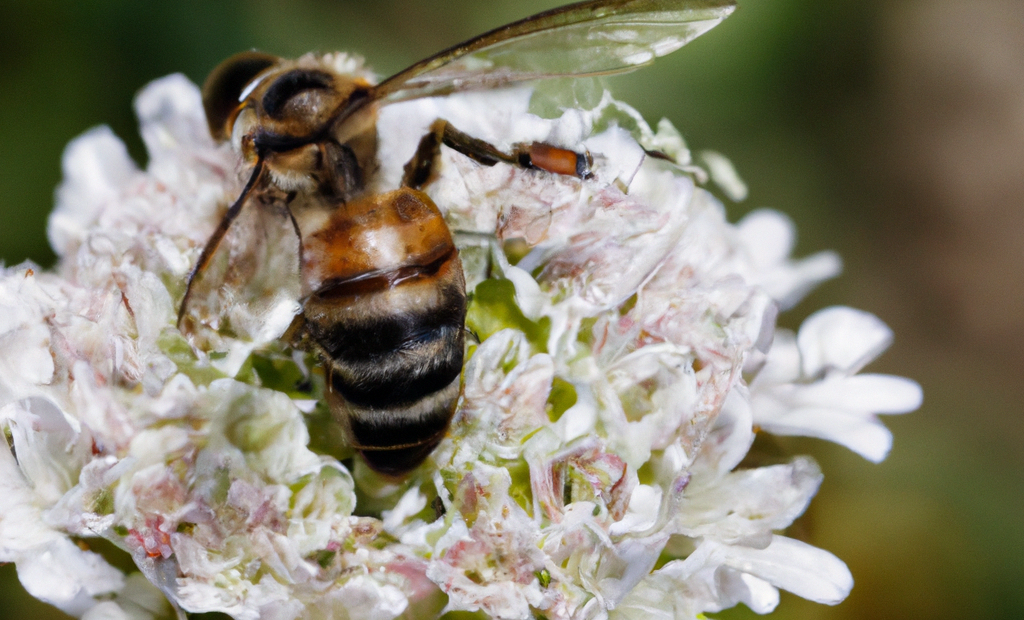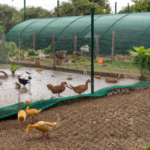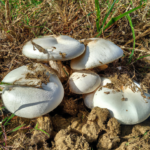Pollinators are critical to organic farming, improving the effectiveness of biofertilizers and soil health, promoting plant genetic diversity, and strengthening ecosystems. Their presence can improve the quality and sustainability of food and agricultural products. The lack of pollinators can negatively impact fertilizer effectiveness and ecosystem health. Therefore, protecting and fostering pollinator diversity is crucial to the sustainability of organic farming.
In the vast and complex world of ecosystems, diverse pollinators play a fundamental role in the prosperity and survival of these ecosystems. The importance of their work goes far beyond their role in seed and fruit production, as they also directly influence the effectiveness of fertilizers and the development of organic farming. This article examines in depth the crucial role of these small but powerful beings in organic farming, the impact they have on the effectiveness of fertilizers in ecosystems, how they improve the use of biofertilizers, and how their action can increase the efficiency of agricultural products. The aim is to underline the invaluable value of diverse pollinators and highlight the need to protect them in order to maintain the health of our ecosystems and the sustainability of our agriculture.
- 1. "The crucial role of diverse pollinators in organic farming"
- 2. "Impact of pollinators on the effectiveness of fertilizers in ecosystems"
- 3. "How diverse pollinators improve the use of biofertilizers in agriculture"
- 4. "Improving the efficiency of agricultural products through diverse pollination"
1. "The crucial role of diverse pollinators in organic farming"
Diverse pollinators play a crucial role in organic farming, a food production system that relies on the use of natural fertilizers and biofertilizers, rather than toxic chemicals. These pollinators, which include a wide variety of insects, birds, and other animals, facilitate the fertilization of plants by transferring pollen from the male parts to the female parts of flowers. This process is essential for plant reproduction and therefore for food production. Without pollinators, many of the foods we consume on a daily basis would not be available. In addition, pollinators contribute to the genetic diversity of plants, which can help make them more resistant to pests and diseases. Therefore, pollinators are not only vital for food production in organic farming, but also for the health and well-being of ecosystems in general.
2. "Impact of pollinators on the effectiveness of fertilizers in ecosystems"
Pollinators play a crucial role in the effectiveness of fertilizers in ecosystems. This symbiotic relationship has a direct impact on organic farming, as pollinators help spread biofertilizers, which are agricultural products rich in nutrients and beneficial bacteria. By transferring these biofertilizers from plant to plant, pollinators help improve soil health, increase crop productivity, and reduce dependence on chemical fertilizers. Without this interaction, fertilizer effectiveness could be significantly reduced, negatively affecting ecosystem health and diversity. Therefore, protecting and encouraging pollinator diversity is essential to maintaining fertilizer effectiveness and the sustainability of organic farming.
3. "How diverse pollinators improve the use of biofertilizers in agriculture"
Diverse pollinators play an essential role in improving the use of biofertilizers in agriculture. The presence of a variety of pollinators, such as bees, butterflies, and birds, increases the effectiveness of biofertilizers, which are an integral part of organic farming. Pollinators help distribute these fertilizers from one plant to another, improving nutrient uptake and stimulating healthy growth. Furthermore, the interaction between pollinators and biofertilizers results in a more robust food chain and more resilient agricultural ecosystems. This, in turn, contributes to the production of higher quality and more sustainable food and agricultural products. In short, the presence of diverse pollinators in crop fields can maximize the use and benefits of biofertilizers, making organic farming a more viable and productive option.
4. "Improving the efficiency of agricultural products through diverse pollination"
Diverse pollination plays a key role in improving the efficiency of agricultural products, including both conventional and biofertilizers. In an organic farming system, diverse pollinators, such as bees, butterflies, hummingbirds, among others, are essential for the reproduction of many plants, improving the quality and quantity of fruits and vegetables. This contributes to better crop yields and the effectiveness of agricultural products. In addition, pollinators can improve the effectiveness of biofertilizers, since these depend on microorganisms that can also be dispersed by pollinators. Therefore, promoting pollinator diversity can be an effective strategy to improve the efficiency of agricultural products and promote more sustainable and resilient agriculture.
Pollinator diversity in ecosystems plays an irreplaceable role in organic farming and in the effectiveness of fertilizers. Diverse pollinators not only maintain and enhance biodiversity, but also increase the efficiency of agricultural products, particularly with regard to biofertilizers. Through pollination, these invaluable allies of nature support the effectiveness of fertilizers, boosting the health and productivity of farmland. In short, preserving and fostering pollinator diversity is essential for more efficient and sustainable organic farming. By ensuring their survival and diversity, we are guaranteeing the resilience of our ecosystems and the viability of food production for future generations.


